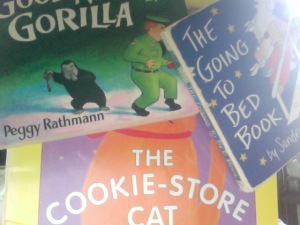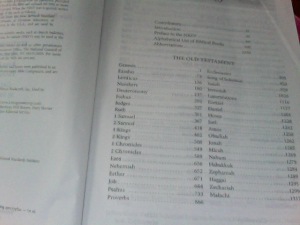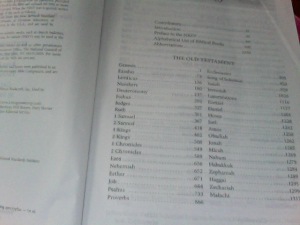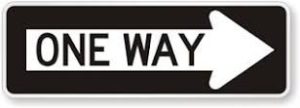
I may not be able to judge a book by its cover, but the words that come before its first period often determine whether I will take a book home or put it back on the shelf. A surprising turn of phrase or an intriguing question are enough to keep me reading. Sometimes the first sentence stands on its own, other times it takes some explaining. Somehow, it leads me to the last few words and the final punctuation mark: period, question mark, exclamation point.
The last words in a book are the door out of its world and back into my own. I don’t read them until I read all the words that came before them – why spoil the surprise? But I do like to go back and read the first sentence again before I put the book away, seeking again the words that began the whole adventure. Do the opening sentence and the final one have anything in common? Could the story in between be something other than what it was?
Sacred or secular, stories begin and end. But the best don’t really end because they have taken residence in the story that is my life. Over the next few weeks, I’ll share some of my favorite beginnings and endings. I hope you enjoy them. Perhaps, if you are feeling bold, you will share some of your own favorites…
In the beginning was the Word, and the Word was with God, and the Word was God…
…But there are also many other things that Jesus did; if every one of them were written down, I suppose the world itself could not contain the books that would be written. John 1:1, John 21:25
Rain fell that night, a fine, whispering rain…
…As Mo had said, writing stories is a kind of magic, too. Cornelia Funke, Inkheart
In those days, there were prophets in Israel…
…Warm and gold the sunlight lay over Greece. Robert Nathan, Jonah
Mickey Cray had been out of work ever since a dead iguana fell from a palm tree and hit him on the head…
…”Me, too, Lucille.” Carl Hiaasen, Chomp
In the beginning, when God created the heavens and the earth, the earth was a formless void and darkness covered the face of the deep, while a wind from God swept over the face of the waters…
…And Joseph died, being one hundred ten years old; he was embalmed and placed in a coffin in Egypt. Genesis 1:1, 50:26
Once there was a little bunny who wanted to run away…
…”Have a carrot,” said the mother bunny. Margaret Wise Brown, The Runaway Bunny
If you are interested in stories with happy endings, you would be better off reading some other book…
…The car drove farther and farther away, until Justice Strauss was merely a speck in the darkness, and it seemed to the children that they were moving in an aberrant – the word “aberrant” here means “very, very wrong, and causing much grief” – direction. Lemony Snickett, The Bad Beginning
The revelation of Jesus Christ, which God gave him to show his servants what must soon take place; he made it known by sending his angel to his servant John, who testified to the word of God and to the testimony of Jesus Christ, even to all that he saw…
The grace of the Lord Jesus be with all the saints. Amen. Revelation 1:1, 22:21
Bibliography:
The Holy Bible, NRSV
Brown, Margaret Wise; The Runaway Bunny (New York: HarperCollins Publishers), 1942
Funke, Cornelia; Inkheart (New York: Scholastic Inc), 2003
Hiassen, Carl; Chomp (New York: Alfred A. Knopf), 2012
Nathan, Robert; Jonah (New York: Robert M. Mcbride & Company), 1925
Snicket, Lemony; The Bad Beginning “A Series of Unfortunate Events” (New York: HarperCollins Publishers), 1999






